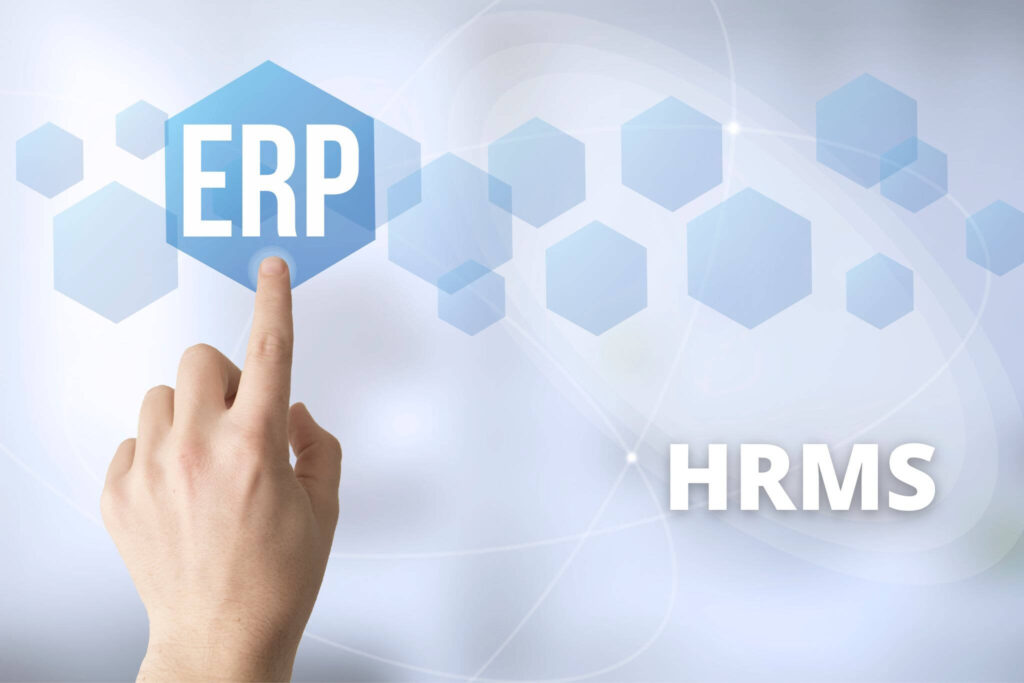Introduction
In today’s fast-paced business environment, organizations must leverage technology to maintain a competitive edge. Two pivotal tools in this realm are ERP (Enterprise Resource Planning) software and HRMS (Human Resource Management System) software. These systems not only streamline operations but also enhance overall efficiency, leading to substantial business growth.
Understanding ERP Software
ERP software is a comprehensive solution that integrates various business processes into a single unified system. It centralizes data, automates routine tasks, and provides real-time insights, enabling businesses to make informed decisions swiftly. From finance and inventory management to customer relationship management, ERP software covers a broad spectrum of business operations.
Benefits of ERP Software
The benefits of ERP software are manifold. First, it enhances operational efficiency by automating repetitive tasks and reducing manual errors. Second, it improves data accuracy and accessibility, which is crucial for strategic decision-making. Moreover, ERP software supports scalability, allowing businesses to grow without facing operational bottlenecks.
HRMS Software: An Overview
HRMS software, on the other hand, focuses on managing an organization’s human capital. It encompasses various HR functions such as recruitment, onboarding, payroll, performance management, and employee engagement. By automating these processes, HRMS software helps HR departments to operate more efficiently and effectively.
Key Features of HRMS Software
HRMS software comes with a plethora of features designed to simplify HR tasks. For instance, it offers automated payroll processing, which ensures timely and accurate salary payments. Additionally, it provides tools for performance management, helping HR professionals to track and evaluate employee performance seamlessly.
The Synergy Between ERP and HRMS
When integrated, ERP and HRMS software create a powerful synergy. This integration allows for seamless data flow between different departments, facilitating better communication and collaboration. For example, data from HRMS can be used to inform financial planning in ERP, leading to more accurate budgeting and forecasting.
Enhancing Employee Experience
A significant advantage of HRMS software is its ability to enhance the employee experience. By offering self-service portals, employees can access their personal information, submit leave requests, and view payroll details without needing to contact HR. This empowerment leads to higher employee satisfaction and productivity.
Streamlining Recruitment and Onboarding
HRMS software also revolutionizes the recruitment and onboarding process. It automates job postings, candidate screening, and interview scheduling, making it easier to find and hire the right talent. Once hired, new employees can complete their onboarding process digitally, ensuring a smooth transition into the company.
Optimizing Resource Allocation
ERP software excels in optimizing resource allocation. It ensures that resources, whether human or material, are utilized efficiently. This optimization reduces waste, lowers costs, and boosts productivity, giving businesses a strategic edge in the market.
Ensuring Compliance and Security
Both ERP and HRMS software play a crucial role in ensuring compliance with industry regulations. ERP systems help in maintaining accurate financial records and generating audit trails, while HRMS software ensures adherence to labor laws and employment regulations. Additionally, these systems enhance data security by providing controlled access to sensitive information.
Driving Data-Driven Decisions
ERP software’s analytical capabilities enable organizations to make data-driven decisions. By analyzing trends and patterns, businesses can identify opportunities for improvement and growth. This data-driven approach fosters innovation and keeps companies ahead of the competition.
Facilitating Remote Work
In the current era of remote work, ERP and HRMS software are invaluable. They provide remote access to essential business data and HR functions, ensuring that operations continue smoothly even when employees are working from home. This flexibility is crucial for maintaining productivity and business continuity.
The Future of ERP and HRMS
The future of ERP and HRMS software looks promising with the advent of artificial intelligence and machine learning. These technologies will further enhance the capabilities of ERP and HRMS systems, enabling predictive analytics, personalized user experiences, and smarter automation. Organizations that adopt these advanced systems will be better positioned to navigate future challenges and opportunities.
Conclusion
In conclusion, ERP and HRMS software are indispensable tools for modern businesses. They streamline operations, enhance efficiency, and support strategic decision-making. By integrating these systems, organizations can unlock their full potential, driving growth and success in today’s competitive landscape.










